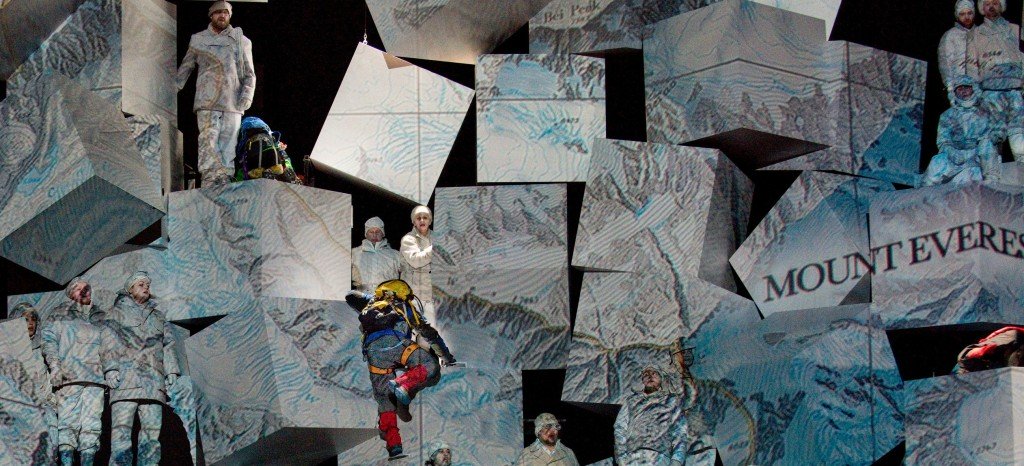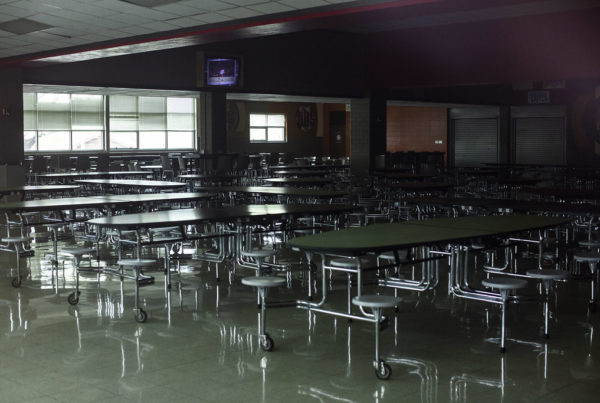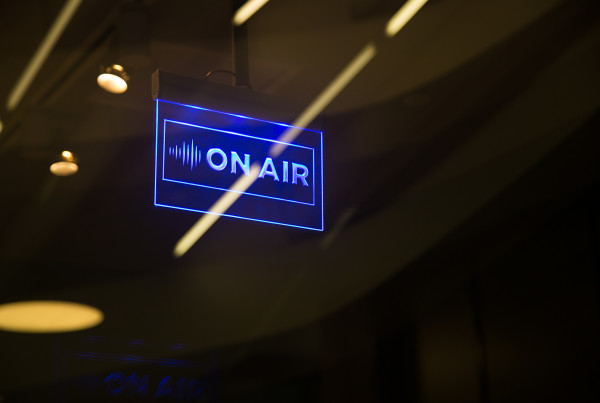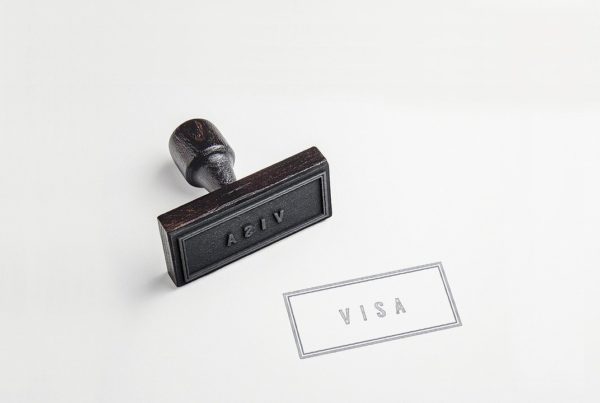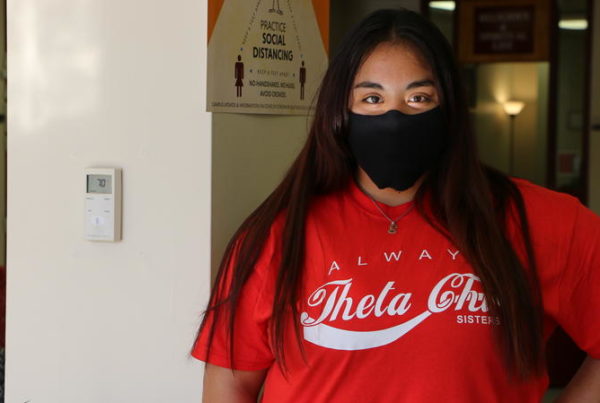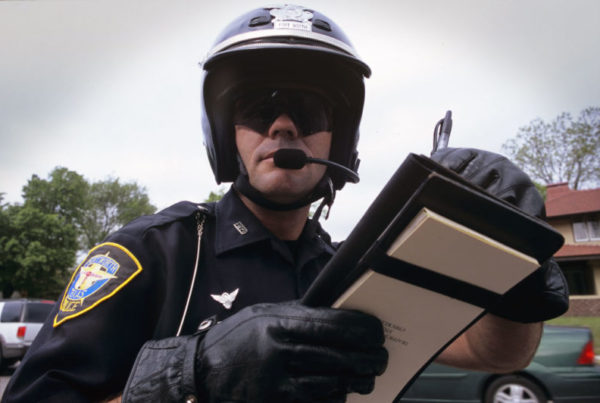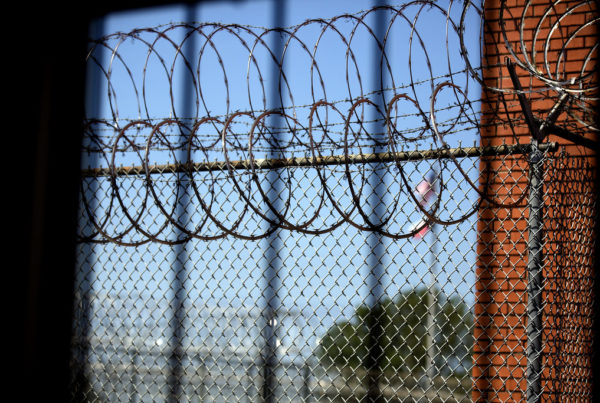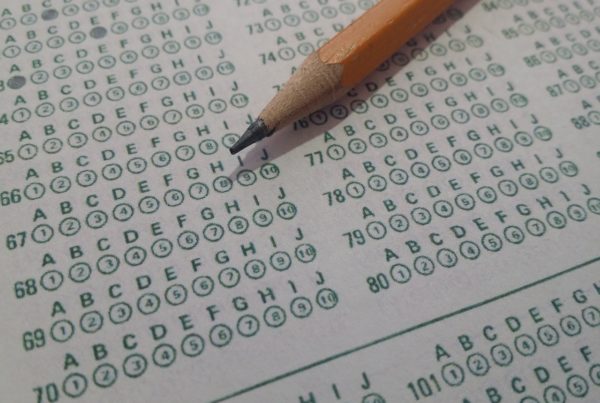From KERA:
Battered financially by the pandemic, the Dallas Opera shut down one show, postponed its entire season until next March. It’s laid off staff members, made others part-time. But surprisingly, right now, the Dallas Opera is killing it — online. And with material you might not expect.
To give an idea of how big the Dallas Opera is on social media: The Metropolitan Opera in New York is one of the largest performing arts organizations in the world — the peak of American opera. In a recent week, the Met put up 21 posts on Facebook, many of them short videos from fully-staged operas. [corrected from: live-streamed, fully staged operas. The Met’s live streaming of complete operas is done on metopera.org]. That week, the Met received around 150,000 total engagements. ‘Engagements’ means people who viewed, commented on or shared the posts.
That same week, the Dallas Opera put up 20 posts and got 370,000 engagements — more than twice the Met. In fact, the only opera company in the world that out-polled Dallas was the Royal Opera House in London — with 28 posts, it was up in the stratosphere with more than 780,000 engagements.
“Big opera towns tune into our content,” says David Lomeli, the Dallas Opera’s director of artistic administration. “Paris watches our content. Munich, Germany, Santa Fe, Los Angeles. Mexico City is one of the cities that watches our content. Sometimes, one of our episodes will reach 193,000″ — meaning a single Facebook video from the Dallas Opera can outdraw the Met’s entire week.
Online videos aren’t new for the Dallas Opera. Over the past 12 years, it’s put up more than 400 on its YouTube channel. A lot have been what you might expect: promos for operas, excerpts from operas, solo recitals from singers, interviews with opera artists, panel discussions.
But there’s also been some of this:
The Dallas Opera commissioned musicologist Stephen Johnson to create “Opera in Brief,” a series of comic, stick-figure animations to explain the art of opera to newcomers.
But the Dallas Opera’s current videos – the new stuff that’s getting all the attention? They’re posted on YouTube and the opera’s own website. But those big audience numbers they’re getting are entirely on Facebook. And that audience skews younger — in their twenties and thirties. The kind of audience classical music managers dream of.
Lomeli explains that in January, the Dallas Opera had lost both its marketing director and social media manager. But it had a new season to announce. So he spoke to Ian Derrer, the opera’s CEO.
“I said to Ian, ‘My assistant at the time, Annie Penner, and myself are really great social media aficionados,’” Lomeli says. “So why don’t we help a little bit to do the social media campaign?”
On Facebook, the Dallas Opera had been reaching 200 people a day. With Lomeli and Penner handling the social media, the season announcement snagged 3,000. “We took note of that, it was interesting,” Lomeli says. “But didn’t do anything with it.”
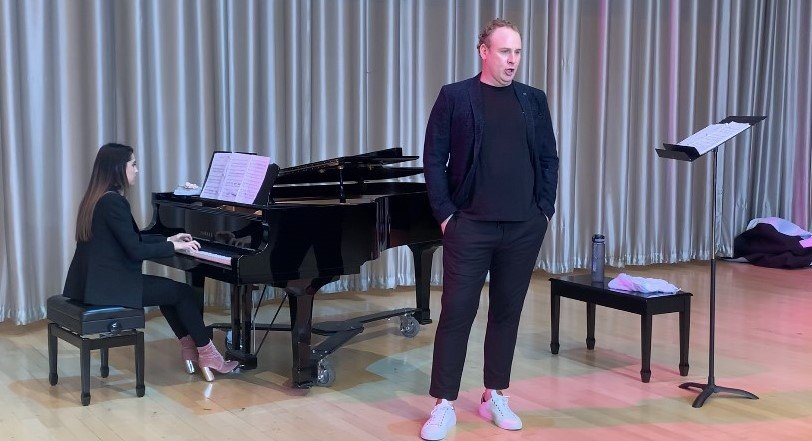
Grammy-winning baritone Lucas Meachem and his wife Irina at the piano, in a recital for the Dallas Opera.
Then in March, during rehearsals of Verdi’s “Don Carlo,” the company had to shut down the production because of COVID restrictions. Grammy-winning baritone Lucas Meachem approached Lomeli about possibly doing something while he was still in town, and Lomelli helped throw together a bare-bones recital with Meachem and his wife Irina on piano.
With social distancing, he recalls, there were just five people in Hamon Hall during the entire March 16th taping.
“But we did it Facebook live, and we got a total reach of 50,000 accounts. And so we were on to something.”
Lomeli researched what other opera companies were doing with social media. Most online opera videos are performances. Or they’re ads for future performances. But with the COVID shutdown, there weren’t any new performances coming for months. And no new performances meant no new star singers in town for recitals or interviews. Finally, when it came to full operas, Lomeli certainly couldn’t match the grand productions the Met can regularly pull from its shelves.
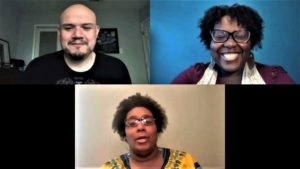
David Lomeli (top left), Quodesia Johnson (top right) and Kristian Roberts (below) on an episode of “Taking The Stage With Kristian And Quo.”
All this, Lomeli says, actually gave him the freedom to experiment with new ideas using social media. He created an entire roster of new shows talking about things you rarely hear about from opera artists. Fat-shaming. The need to be multi-tasking entrepreneurs to sustain a career as an opera singer (both from “The Diva Who Hustles”). Opera and feminist empowerment. Opera and yoga (from “Living Your Best Life with Deanna”).
“Basically,” he says, “we needed to create something like ESPN or The Food Network.”
You mean, I ask, you talk to chefs about the politics of food, but you don’t do the cooking?
“Exactly, that was the premise.”


